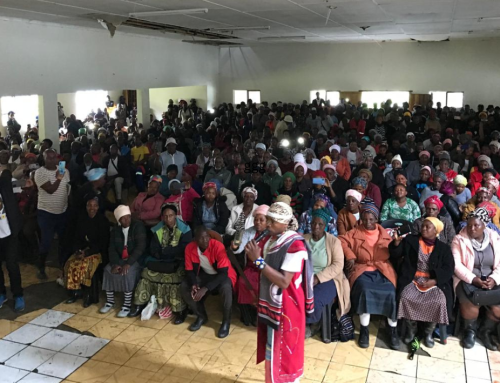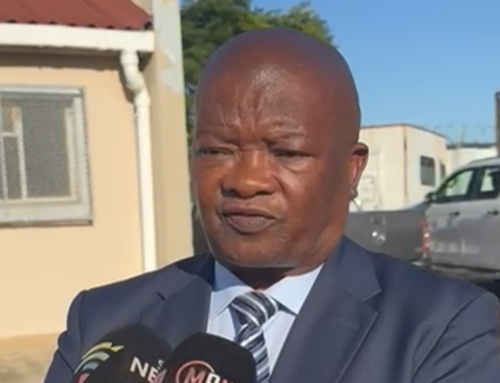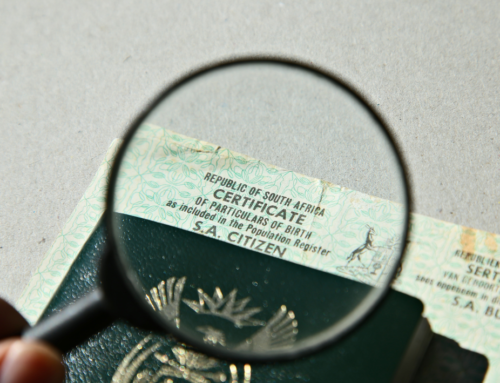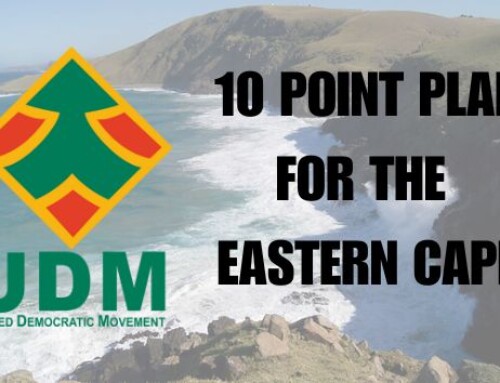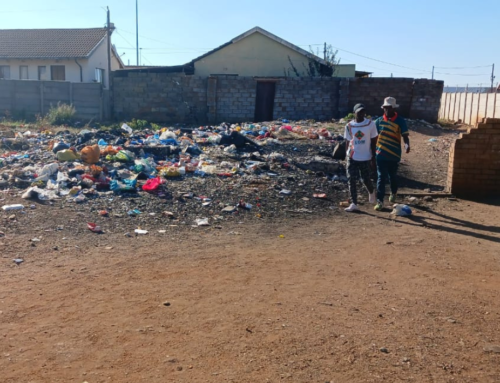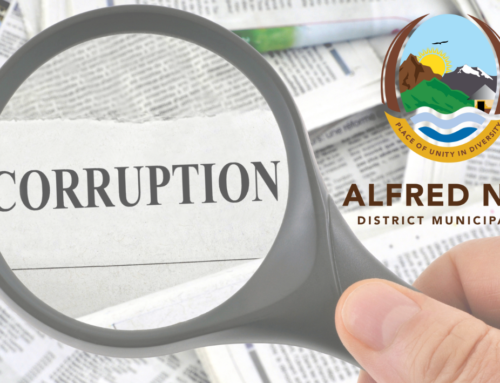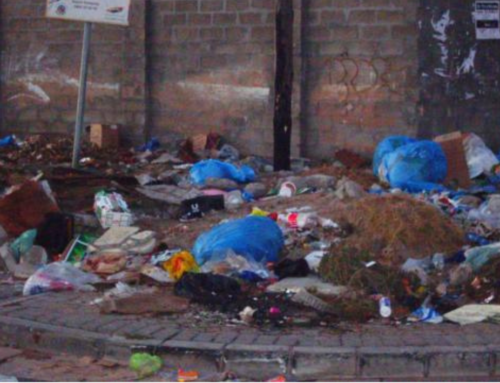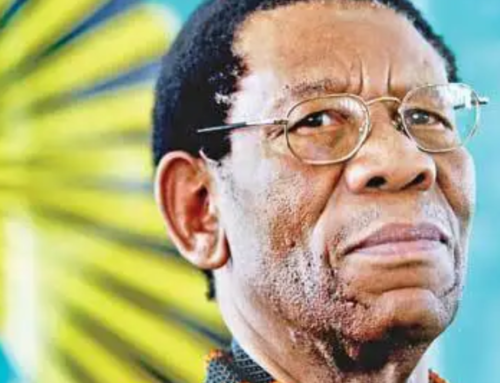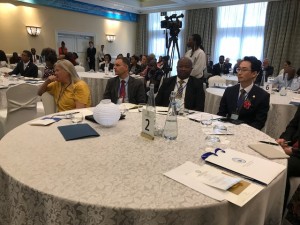
Bantu Holomisa at the “The State of Peace in Africa – advancing the legal framework for a conflict-free Africa” 2nd Annual Commemoration of the Proclamation of the Declaration of Peace and Cessation of War
Bantu Holomisa, MP and UDM President’s contribution to the debate “The State of Peace in Africa” – advancing the legal framework for a conflict-free Africa” at the 2nd Annual Commemoration of the Proclamation of the Declaration of Peace and Cessation of War
• Our hosts,
• Colleagues,
• Distinguished guests and participants,
• Ladies and gentlemen
1. Introduction
Let me start by saying that the United Democratic Movement (UDM) believes in the noble idea of the Declaration of Peace and Cessation of War (DPCW); especially in its uniqueness to end all war.
Yet, as we are all aware, this is the proverbial “tall order”, which is ironic when one considers that most countries proclaim that peace is high on their national agendas.
Let me also admit the following. In pondering this dilemma, and the virtuous intent of the DPCW, I am left with more questions than answers.
2. Religious persecution in Africa
It is a sad fact that religious persecution is on the rise in Africa and the Middle East. It is said that the oppression of different religions in Africa dwarfs that of what is referred to as the world’s “most intractable conflict” i.e. the Israel/Palestine scenario.
The world does not often enough talk about religious persecution in Africa, and the other “less important” parts of the world, as evidenced by President Donald Trump’s recent comment about Africa being a… I am not going to say the word.
3. Ethnic persecution in the name of religion
To exacerbate matters, the line between ethnic and religious violence is often blurred. Differences in religion is used to “justify” ethnic cleansing or to assert dominance. The “us-and-them” mentality.
Arguably the most stupefying example of this was the anti-Semitism in the Hitler-era. On a side note, with the acknowledgement of the suffering of Jews in Europe at that time, I wonder how those atrocities would compare to the religious persecution on the African continent over the last fifty years or so?
However, in this regard, the DPCW is crafted broadly enough to say that war, no matter in which way it is justified, is wrong. Full-stop.
4. Religious persecution perpetrated by entire countries and how to make international law and concords stick?
Naturally, to say that conflict in the name of religion, is only perpetuated by so-called radicals or fundamentalists, is simplistic.
Persecution may be triggered by religious bigotry by a state when it views a particular religious group as a threat to its interests and/or security. Therein lies much of the rub for the DPCW.
Even with internationally accepted definitions, many nations have a different interpretation of what constitutes “national interest” and “national security”. This is also not static, depending on which party, or dictator, governs a particular nation.
There must be a universal agreement on what national interest, security and religious tolerance means; whether one talks about North Korea, Egypt, China or Nigeria.
To use the analogy of alcoholism… admitting that there’s a serious problem is the first step.
The next question would be, how does one treat countries where, at the most, they can be “punished” by using sanctions; which (more often than not), adversely affects the very people who needs protection from their governments.
5. Sovereignty of nations and their ability to defend themselves against aggressors
Firstly, quite often the very countries where religious intolerance occurs, operate outside multi-national treaties and United Nations’ accords.
One also has to be careful about the sovereignty of countries and even if this initiative gets billions of signatures to support it, how could this initiative, for example, stop China from considering the Dalai Lama a “dangerous separatist”.
Secondly, as we have seen with the stand-off between North Korea and the United States, where does one draw the line between being able to defend one’s country against aggression versus demilitarising the entire world?
Unfortunately (even though the world’s countries more or less have established boundaries) where humans are involved, conflict will ensue.
That is why this initiative makes so much sense i.e. to have international understanding about achieving a warless society, that is legislated in some form.
6. Return of world-wide conservatism and refugees
Terrorist attacks, sometimes in the name of religion, have contributed to an up-rise of world-wide conservatism, which has an element of intolerance. The issue of refugees, in the so-called developed countries, also contributes to this global “right swing”.
It is clear that not enough is being done to resolve conflict in affected countries, especially in terms of our discussion today, on the African continent.
7. Conclusion
The work of the United Nations, and international NGOs and bodies, is critical in bringing stability to many situations where religious persecution is rife; especially where it has escalated to war. The role of the media, as acknowledge in the DPCW, is an important piece of the puzzle, which is to shine a spotlight on the trouble-ridden parts of the world.
However, the potentially biased interference by the world’s so-called super-powers, should be curbed. Even should their actions be well-intended, the world must understand that Africans will, because of our history, remain doubtful of our former colonisers.
On a more positive note, the UDM has consistently advocated for constructive engagement between people with opposing views.
Let the people with the problem, talk to each other (possibly with the assistance of a mediating body) or it should be considered to host a national gathering, where issues can be brought to the fore. In such a forum tolerance should be advocated and solutions found that suit all stakeholders; acknowledging and protecting religious (and other) minorities.
Thank you
Event hosted by:
Heavenly Culture, World Peace, Restoration of Light in collaboration with the
International Peace Youth Group and
Junior Chambers International and Africa Unite



